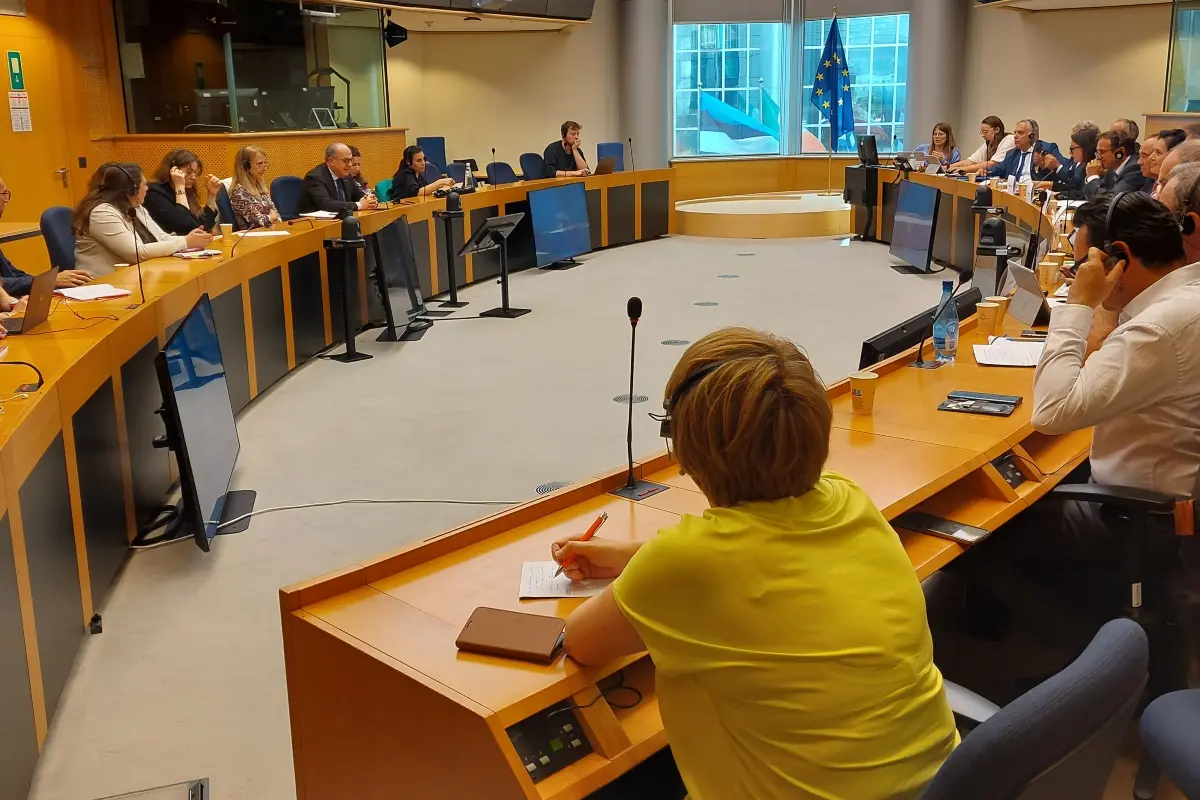
Packaging and pesticides: Italy, France and Spain are asking for radical changes
Cooperatives keep the point in the European Parliament: "No to policies that generate additional costs"

A radical change in the approach of the legislative proposals on the reduction of the use of plant protection products and on new packaging standards. This is what the fruit and vegetable cooperatives of France, Italy and Spain asked for during a well-attended meeting held in the European Parliament, promoted and organized by French MEP Irene Tolleret .
The representatives of the main fruit and vegetable cooperatives of the three producing countries illustrated to the MEPs present at the meeting the numerous progress that the European fruit and vegetable sector has already made in reducing the use of plant protection products and optimizing the use of packaging and its reuse . “We must listen to the voice of fruit and vegetable producers, who supply us with healthy food - Tolleret commented -. Reducing production in the European Union would mean increasing imports from third countries, which respect environmental and social standards lower than those of Europe. The importance of European food sovereignty must be reaffirmed".
The cooperative organizations reiterated their clear negative judgment on the regulatory proposals presented by the European Commission deriving from the Farm to Fork strategy, starting with the new ban on the use of packaging for packages weighing less than 1.5 kg, defined as "arbitrary, disproportionate and discriminatory”.
As regards the 50% reduction in the use of plant protection products, this is an "unrealistic and not economically feasible hypothesis, because it is not based on any scientific data and does not take into account the efforts already made, nor the various impact studies that all converge in predicting an inevitable drop in production”. It is therefore necessary for Europe to abandon its "punitive and bureaucratic strategy" and instead aim to safeguard "a competitive European agriculture and the food sovereignty of its consumers, avoiding imports from less sustainable third countries".
First of all, European cooperatives are asking for longer times that go well beyond the time horizon of 2030, the carrying out of adequate and complete impact studies and the effective availability of alternative tools that science and research will be able to put available to the sector, together with new technologies (new genomic techniques, application of drones, more resistant varieties, etc.). Secondly, "the Commission should prevent the entry into the EU of any fruit and vegetable product from a country where the use of plant protection products banned in the EU is permitted and "the principle of reciprocity" put into practice through an ad hoc regulation". Given the precise situation of the sector and of the markets, the Commission "should refrain from introducing excessive Community policies which end up generating additional costs", reads the note from Alleanza Cooperative Agroalimentari.
EFA News - European Food Agency